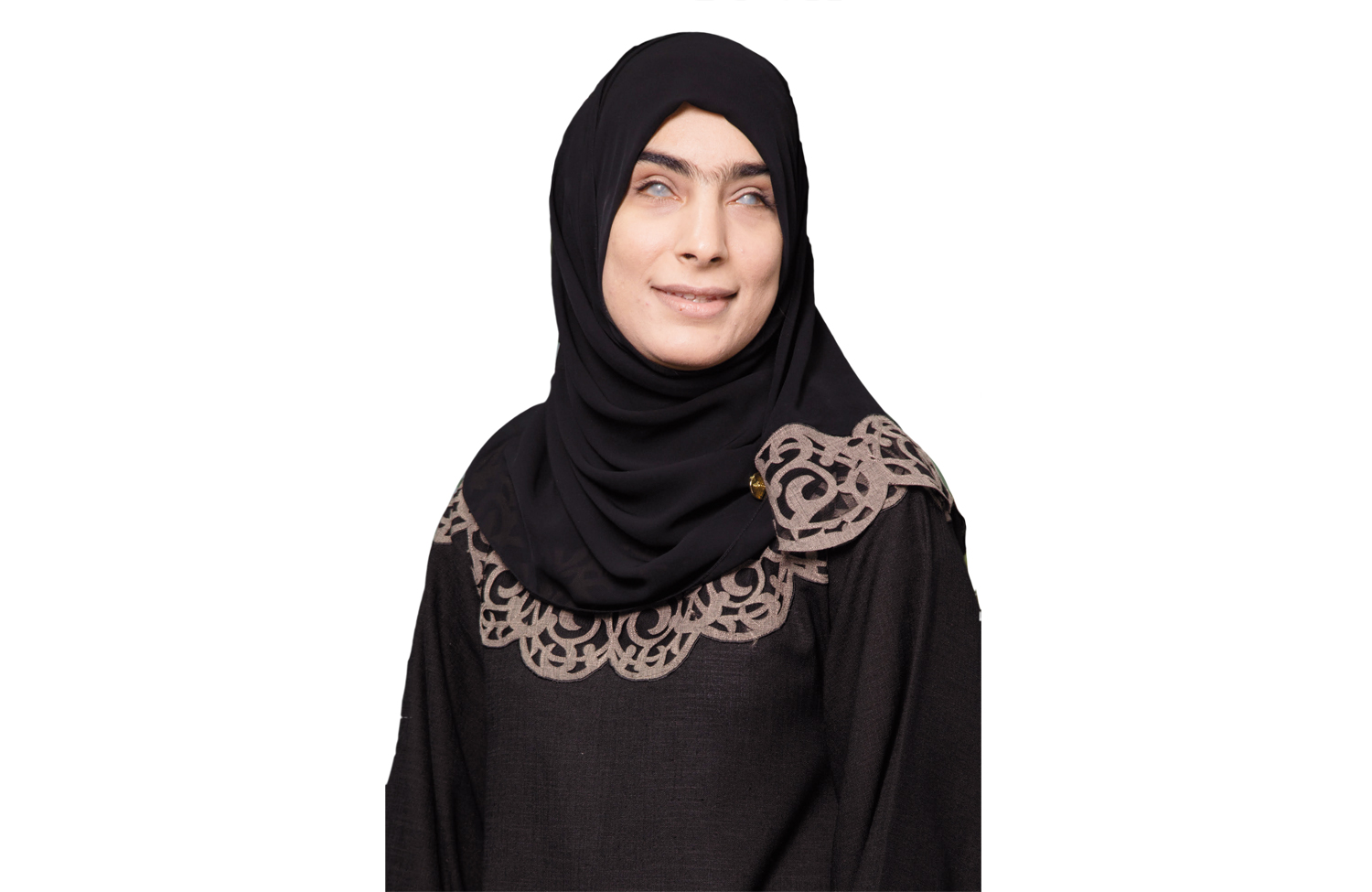

Sheikha al Jassasi may be visually impaired but her lack of sight did not stop her from achieving great things like earning her education or running a business.
Her strength of character is something she developed early on thanks to her father who believed that there was nothing she cannot do.
Today, Sheikha works at the Information Technology Authority and just like any modern employee, she’s cozy with a laptop and mobile phone.
In fact, technology has been her best friend. It was a computer that aided her when she applied for admission for a degree in Translation at Sultan Qaboos University and it is apps that have made her career fruitful in addition to making her achieve her Master’s in Business Administration possible.
She doesn’t let her visual impairment stop her from achieving the things she wants in life. She had been busy, more now that she is running a Turkish restaurant with her brother.
“He is the marketing and sales in charge and I am the financial controller,” she said.
Her parents have been her biggest strength.
“My father used to say you can. And that was enough for me to chase after my dreams,” she said.
The faith her parents had in her was actually the strength that let her continue her schooling in Bahrain although it was painful to be away from parents.
There were no schools or specialised teachers at that time in Ibri to teach visually impaired students.
“I was eight years old and it was very challenging for me at the time. But in Bahrain, I learnt the Braille method as well as reading and writing using dots. I also learnt to read and write all subjects in addition to becoming independent. I was there for nine years. When I graduated from the ninth grade, I returned home,” she shared.
She added, “This was a new phase of my life because I was in a boarding school but the teachers were not equipped to teach visually impaired people. I was the first student and they were reluctant to teach a girl like me. Also, books were not available in Braille. My parents and my relatives used to record my lessons in audio cassettes for me to study. Exams were also a big challenge for me. I would answer the questions orally and the teacher used to write it down for me. Earlier, I was reading my own questions and answering on my own,” she shared.
“I accepted the challenge because I had a vision and a dream and because my parents had been encouraging me to pursue my education. They believed education will make me a confident and productive person,” she said.
Before Sheikha enrolled as a student with a major in Translation in English Language, it was impossible for visually impaired students to take up majors other than History.
“It was believed that visually impaired students cannot read and write answers on their own. Because of the available assistive technologies for visually impaired people and individuals with senses disabilities, situations have changed. We use screen reader — the software that reads aloud everything that is on the screen. I learnt to type when I was in school and also learnt to use the computer like any other person. So when I went to Sultan Qaboos University, when they asked me how I would be able to read and write my answers, I said, ‘I can do that.’ So after the test, negotiations and being convinced that I could do it, I was accepted in the translation major department. This was 11 years ago,” she narrated.
Sheikha wanted to study translation because visually impaired students were not able to learn other languages because there were no qualified teachers to teach them. Secondly, all technologies were available in second languages.
“All the manuals were in other languages. So I wanted to help my brothers and sisters who are visually impaired to use the technology confidently. This will not happen until we understand the manuals and the guidelines. So I felt translation was helping me in giving something back to life and society,” she explained.
Sheikha’s voice-activated smartphone is full of apps.
“I have one app that helps me detect the colour of the dress and even shoes. Another app that is extremely useful is the one that describes the surroundings for the visually impaired person as well as people with sensory disabilities,” she shared.
Sheikha said that they always find ways tapping technology to help them live an easy life.
She shared that as visually impaired, paying for things they buy was once a problem.
She worked with Al Noor Association for the Blind and worked with a developer who can develop an app that can detect or recognise Omani currency.
They found one from Qatar and “today, we can confidently hand over and receive change while we go shopping,” she said.
Sheikha is not done yet though. In fact, all her current achievements just made for other things to become possible. After achieving her masters, she has set her mind into getting her PhD — breaking an even bigger barrier for her and other people with the same impairment as her.
LAKSHMI KOTHANETH
Oman Observer is now on the WhatsApp channel. Click here



